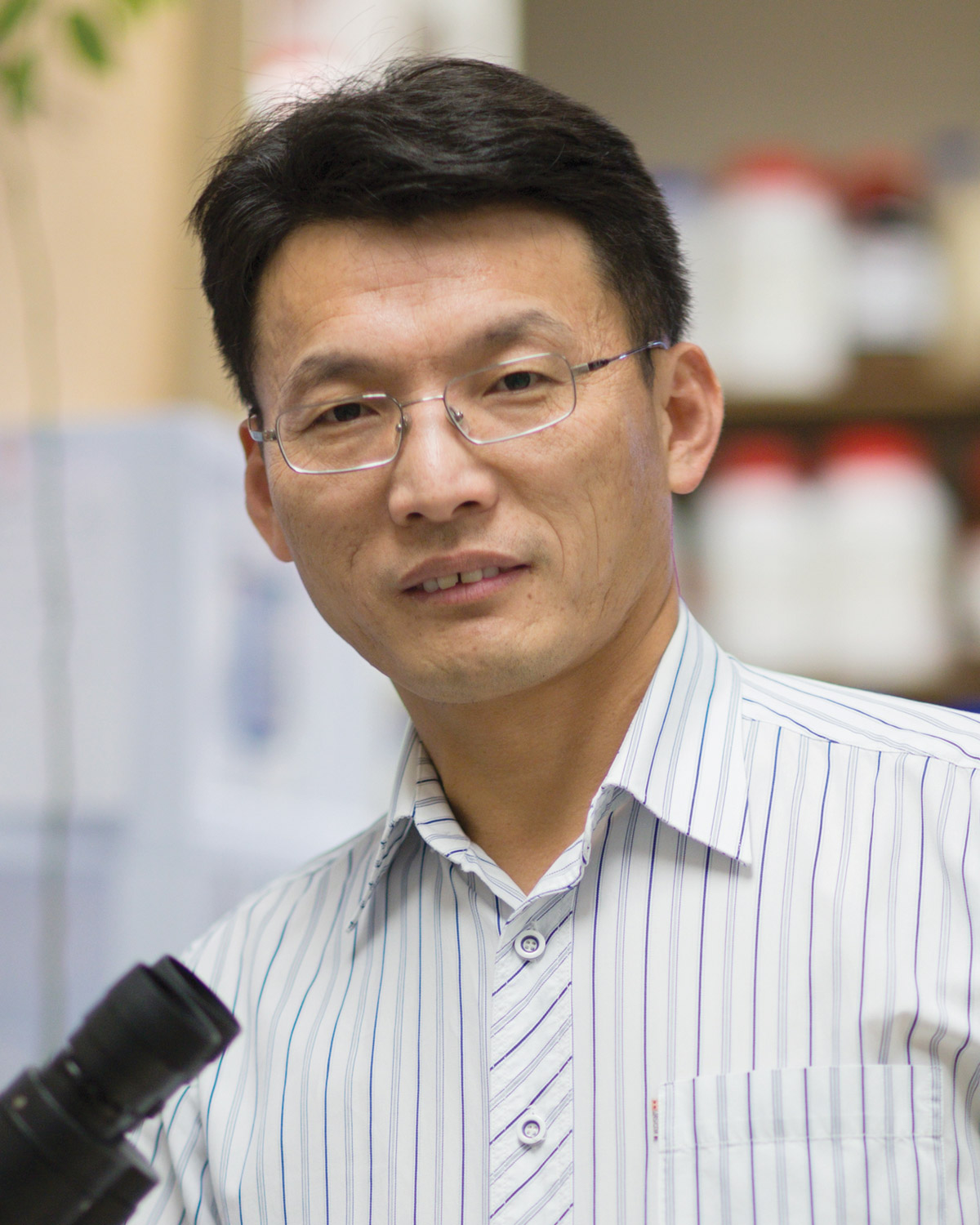Nian Wang, Ph.D.
Professor and the Mr. and Mrs. J.R. “Rip” Graves Eminent Scholar Endowed Chair in Biotechnology
Institute of Food and Agricultural Sciences
2024 Awardee
In Florida, growers are reeling from the extensive damage to their crop by citrus greening disease. From his lab and experimental fields at Lake Alfred — in the heart of Florida’s citrus belt — Nian Wang studies ways to prevent further harm to the state’s signature crop.
Wang, a professor of microbiology and cell science at the UF/IFAS Citrus Research and Education Center, focuses on developing solutions to diseases affecting citrus production.
“Dr. Wang has used his expertise in biotechnology to pioneer the process for creating transgene-free/non-GMO citrus varieties, utilizing genomic editing technologies,” says Michael Rogers, the center’s director. “Dr. Wang created the world’s first non-transgenic citrus tree that is resistant to citrus canker. His work continues, using the processes advanced in his lab to develop citrus varieties resistant to citrus greening disease.”
Wang says he’s honored by the professorship.
“I appreciate the nomination and recognition,” Wang says. “It is an inspiration to get the job done as soon as possible.”
That job is to help control citrus greening, a pathogen-triggered immune disease, which requires extensive research.
His work has appeared in 131 journal articles in his time at UF/IFAS. Many of those have been published in top-tier journals such as Nature, Nature Communications, Nature Plants and the Proceedings of the National Academy of Sciences.
Additionally, Wang has received 10 patents from his research. He’s also a successful grant writer, receiving more than $12 million in funding in the past five years.
In his research, Wang uses the CRISPR gene editing tool to fine-tune the immune system of citrus trees. That makes the citrus greening pathogen act like a non-pathogen, similar to how bacteria behave in the
human gut.
In a recent study, Wang demonstrated how scientists can identify modifiable target genes to help prevent citrus greening. Findings from the study also provide guidance on how to use horticultural approaches to alleviate the damages caused by the citrus greening bacterium.
“I am excited to see that the CRISPR genome editing technology that we developed for citrus is getting close to bringing solutions to citrus growers, even though we are not there yet,” he said.


